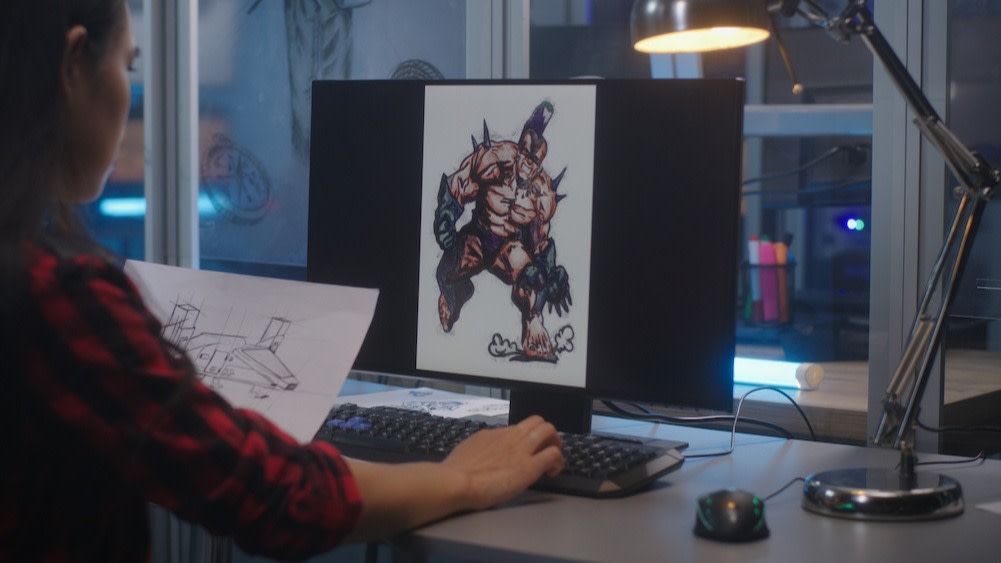How to Become a Video Game Designer
Written by MasterClass
Last updated: Jun 7, 2021 • 3 min read
There are dozens of careers in the fast-growing video game industry that contribute to quality game production. These highly coveted positions include game designers, animators, producers, artists, and programmers, who all work together to create a fun, playable product that gamers can enjoy.
Learn From the Best
What Is a Video Game Designer?
Game designers are responsible for both the foundation and execution of the game mechanics and overall user experience. Depending on the studio or production company, a video game designer’s role can encompass different responsibilities. For large studios, the video game designer is an introductory level design position that focuses on designing a handful of stages for the game. For small indie companies, a video game designer functions as the concept artist, art director, and lead level designer. Game designers are responsible for both the foundation and execution of the game mechanics and overall user experience.
What Does a Video Game Designer Do?
Video game designers are responsible for developing a video game’s storyline, characters, and dialogue. Along with the rest of the video game development team, designers also help set the rules of the game. Designers map out a game with flowcharts, mockups, and detailed layouts that showcase how all of the game’s elements work in tandem.
Designers determine the difficulty of gameplay, as well as the type of obstacles the player will encounter. Game designers blend the story with the environment, collaborating with other team members like game artists to get the right visuals, and with sound engineers to create the right ambiance and effects.
How to Become a Video Game Designer
If you want to curate a successful career as a video game designer, check out the following steps:
- 1. Get a degree. The video gaming industry is highly competitive. While there are no formal education requirements, completing a game design degree program can give you a competitive edge. Some game designer jobs may require a bachelor’s degree in computer programming or fine art, while others may only require a high school diploma. While talent is essential to game developers, knowledge and work experience in a related field like graphic design or computer science can help make you more of an asset. If school is not an option, there are various independent game design programs you can complete to boost your knowledge and experience.
- 2. Decide your career path. Since video game design can be a broad field encompassing many roles, you’ll need to choose an area of focus. Do you want to be an environment artist in charge of backgrounds and scenery details? Or do you want to conceptualize the initial look of the game? Having an area of focus can ease the pressure of your job search, allowing you to hone in on the role you want, and avoid applying to roles outside of your dream position.
- 3. Know more than the basics. The games industry is a high-pressure and deadline-driven environment, so you should have a full understanding of the game design process, from concept to publishing. A clear understanding of the designer’s roles and responsibilities can make you a stronger candidate for potential employers.
- 4. Expand your skillset. Game designers need strong communication skills and consistent, meticulous attention to detail. Familiarize yourself with game engines, design software, programming languages, scripting languages, as well as the game publishing process, so that potential employers see you as a valuable and necessary asset.
- 5. Search for positions. Create a website or create a profile on job sites to advertise your skills and availability. Try to network with people who work at indie companies or small game studios to get on their radar so that when an employment opportunity opens up, you are in the best position to get the job.
- 6. Design your own game. The best way to become a game designer is to design your own game. If you have the time and proper software, you should create a game or prototype that demonstrates your abilities and technical skills. If you don’t have access to the right resources, compile a resume and sample portfolio. When drafting your resume, outline any relevant design experience. If you don’t have any design experience, make sure your portfolio includes level samples that you designed to showcase your talent.
Learn More
Get the MasterClass Annual Membership for exclusive access to video lessons taught by masters, including Will Wright, Paul Krugman, Stephen Curry, Annie Leibovitz, and more.
